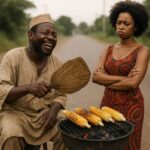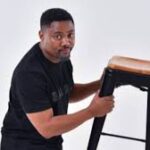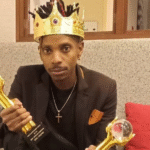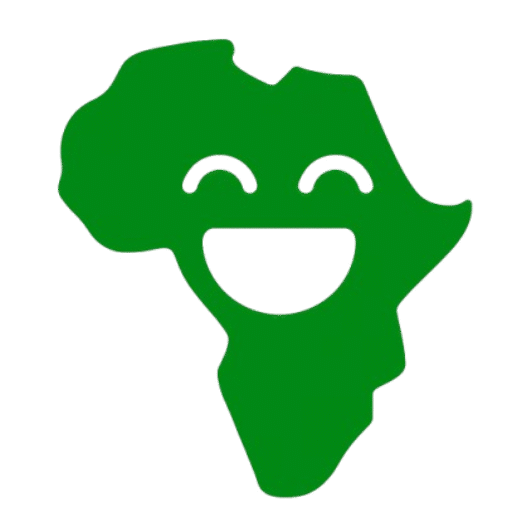Afro Comedy: Trevor, thank you so much for doing this. Let’s dive right in. You’ve spoken often about identity and belonging, growing up mixed‑race in apartheid South Africa. At what moment did you realize that your “mixedness” was both a burden and a tool?
Trevor Noah: Thanks for having me. It’s funny — I don’t think there was one single lightning‑strike moment. It was more of a layering. As a kid, I just was. My mom never smacked me with the idea that “you are mixed” in a way that was defining; it was simply the colour of my skin, the rhythm of multiple languages, the “you don’t look like everyone else” comments. But living under apartheid, where laws said people couldn’t love across colour lines, meant that the very fact of my existence was illegal. So from the beginning I had to understand that even to exist was a kind of protest. Over time, I saw that what others treat as “otherness,” I could turn into connection — learning languages, inhabiting different neighborhoods, moving between worlds. That tension, that outsider view, became essential to my perspective.
Afro Comedy: One of your most powerful relationships in Born a Crime is with your mother, Patricia. She taught you lessons that seem brutal, honest, loving at once. How much of your humorous storytelling comes from her influence?
Trevor Noah: She’s everything. My mother was fierce. She believed in rules, but also in pushing boundaries. Some of the punishments, yes — “harsh” is the kind word. But she was also the person who said: “If you don’t mess up, how will you learn where the edge is?” She was always teaching me with love, even when it hurt. And humour — so much humour came from her. From her stories to how she responded to absurd things. When you grow up in a system where so much is absurd — laws based on race, your own mother sometimes unable to walk with you in public because it could be dangerous — the ability to laugh, even at the pain, becomes survival. That taught me that comedy is not escapism; it’s a tool for survival and connection.
Afro Comedy: During your time hosting The Daily Show, you often played the role of outsider — both as an immigrant and someone who views America from a distinct angle. Did you ever feel an imposter, stepping into that role replacing Jon Stewart?
Trevor Noah: Oh, many times. Very often. But here’s something I learned: imposter syndrome is just a sign that you are in a place worth being. When I took over, people had opinions: some great, many critical. I had to embrace that I didn’t have to be Jon Stewart. I had to be Trevor Noah — with all my own questions, quirks, my accent, my cultural references. And actually, bringing the outsider lens wasn’t a handicap; it was a strength. It allowed me to ask questions others might take for granted. It made me realize that people want honesty. They want to see someone saying, “I don’t know how this works here, but this is how I see it.” And often, that see‑through is what makes humor sharp and also healing.
Afro Comedy: In Into the Uncut Grass, your children’s book, you revisit parts of your childhood in apartheid South Africa. What made you decide to translate those heavy moments — pain, segregation, identity — into something for younger readers?
Trevor Noah: I believe stories have power, especially when you start young. We grow up absorbing so many unspoken rules about race, belonging, shame. I wanted a book that didn’t shy away from what was painful, but also didn’t traumatise. One that says: “This is what I lived through. This is how I laughed. This is how I learned. You can too.” My childhood was full of contrast — danger, love, absurdity, beauty. If I waited until adulthood to tell those stories, many kids might grow up without knowing some of the truths, or feeling alone in them. Kids can grasp a lot more than we often assume. And I wanted younger people across Africa and beyond to see themselves: maybe in the language, maybe in the mix of families, neighborhoods, rules, injustice — and know that their story matters, that their voice matters.
Afro Comedy: You’ve often said humour is a coping mechanism. But it’s also a weapon, a mirror, a bridge. In your work, how do you balance the weight of truth with the urge to make people laugh?
Trevor Noah: That is always the tension, isn’t it? On one side: the urgency of truth. On the other: the comfort of laughter. If there is no laughter, truth can become so heavy people shut it out. If there is only laughter, truth becomes cheap. What I try to do is anchor the comedy in something real — a moment of vulnerability, a memory, a small detail that reveals something bigger. Then I stretch it, play with it, make people laugh, but also leave something behind — a question, a discomfort, maybe even a recognition. My goal isn’t to make people feel bad. It’s to make people feel seen, and maybe think. If, after the laughter, someone says, “Huh, I didn’t think about it like that before,” then I’ve done something. If someone says, “I saw myself there,” that’s powerful.
Afro Comedy: As someone whose journey traversed many borders — literal and figurative — what advice do you have for up‑and‑coming comedians in Africa who want to tell big stories, not just jokes?
Trevor Noah: A few things:
- Own your voice. There are universals, yes, but your power often lies in what’s particular — your accent, your upbringing, your challenges. Those make you unique.
- Listen deeply. To people, to your past, to the histories in your neighborhood. Comedy comes from seeing what others take for granted.
- Don’t fear vulnerability. Realness connects. If you’re willing to share the parts that hurt, the parts that doubt, people will meet you there.
- Keep reading, watching, learning. The more you understand history, culture, language, the sharper your lens. Don’t just consume comedy — absorb life.
- Be patient. Large stages, big audiences, international fame — these are possible, but rarely quick. Sometimes the stories grow slowly; sometimes you have to live in the waiting. Don’t let the pace of your growth define your worth.
Afro Comedy: Before we let you go — last fun one. Over all your interviews, what’s a moment you remember that ended up being unexpectedly comedic — something you thought would go one way, but laughter came from somewhere else?
Trevor Noah: (Laughs) There are many. One that jumps out: I once told a story about road rage in South Africa — how I used to enjoy the confrontation, the chase, the heated yelling. Then I moved to the U.S., and one of the first times I got cut off in traffic, I thought, “Ah‑ah, maybe I should just… let it go.” Because cars can kill here. Guns are more present. What seemed like fun theater before suddenly felt dangerous. The punchline was not what I planned: I thought the audience would expect the same fiery Noah‑on‑a‑road story, but instead laughter came when I admitted how cowed I felt one morning, hands on the steering wheel, heart racing, thinking about more than just the insult — thinking about real risk. That admission to fear, to caution — that vulnerability — it cracked the room more than any punchline I’d prepared.
Afro Comedy: Trevor, this has been incredible. Thank you. Before we close, one final thought: if people take one thing away from your journey, what should it be?
Trevor Noah: That life is contradictory. That you can be broken and beautiful. That your pain doesn’t have to define your destiny — but it can fuel your purpose. And that humour isn’t frivolous. It’s urgent. When we laugh at the absurdities, we also open doors to truth. If I can leave you with that — with courage to laugh, courage to feel, and courage to speak — then I’ve done what I set out.
Note: This is a creative interview reconstructed from Trevor Noah’s published interviews, memoir (Born a Crime), and public speeches. It is not a direct or exclusive interview.
















